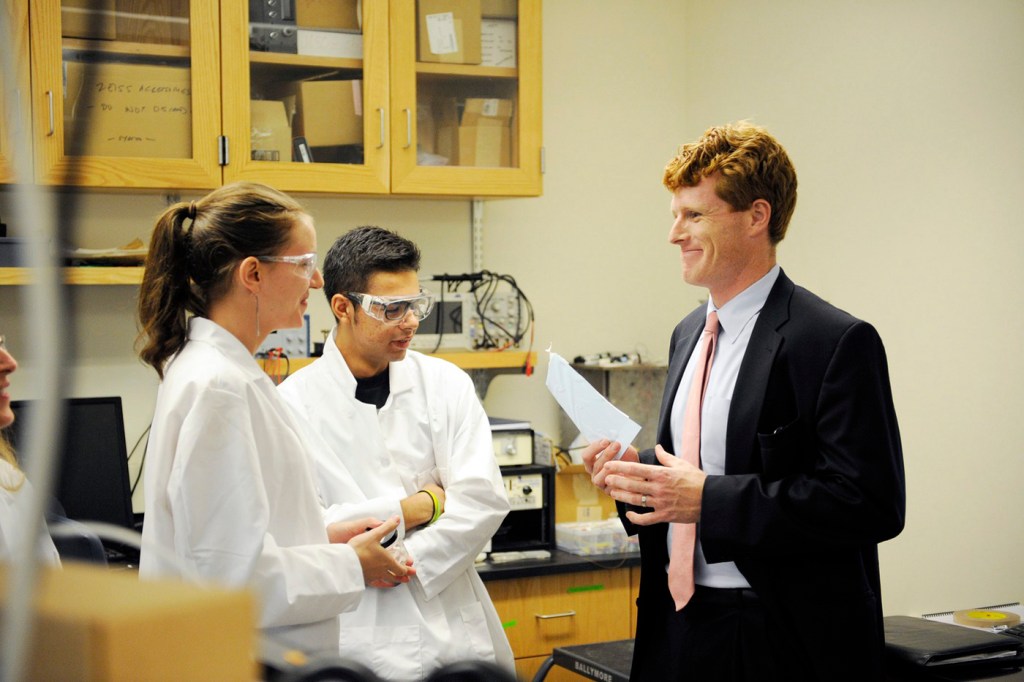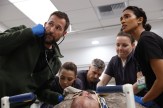Congressman praises Northeastern’s commitment to STEM education

U.S. Rep. Joseph Kennedy III visited Northeastern’s campus on Wednesday to learn about the university’s commitment to bolster interest and participation in science, technology, engineering, and math education.
Kennedy, who represents Massachusetts’ 4th Congressional District, met with students in Northeastern’s Center for STEM Education’s Young Scholars Program, toured a micropower and nanoengineering lab in the Egan Research Center, and then discussed the university’s STEM partnerships and pathway programs with university deans.
“Northeastern is in a strategic position to be a perfect fit for some of the challenges we face today (in STEM education),” Kennedy said. “Because of the co-op program, I hear over and over again not just in Massachusetts but across the country, people come out of this institution with experience and credibility.”
According to the U.S. Department of Commerce, over the past 10 years growth in STEM jobs was three times as fast as growth in non-STEM fields. Northeastern has leveraged its experiential learning model and research-driven mission to help prepare students for careers in the industry.

U.S. Rep. Joseph Kennedy III discussed the university’s STEM partnerships and pathway programs with university deans during his visit to Northeastern on WednesdayPhoto by Matthew Modoono/Northeastern University
Last fall, Northeastern University’s Lowell Institute School became the first-in-the-nation school to focus on degree completion programs in STEM fields for non-traditional students who have some undergraduate experience and want to matriculate to a bachelor’s degree. The four-year, $3.9 million award from the Department of Education’s First in the World program was leveraged by an additional $5 million in philanthropic gifts to the Lowell Institute.
Last spring, Northeastern launched a new master’s degree program for professionals who want to transition into high-growth industries, like computer science, cybersecurity, and bioinformatics, but do not have undergraduate degrees or work experience to match the needs of these industries.
The program is called ALIGN—which stands for Accelerated Link to Industry through Northeastern’s Global Network—and offers eight master’s degrees with customized curriculums that bridge students’ undergraduate education with the graduate degree content. The program includes a six-to-nine-month co-op position.
Northeastern University-Seattle has taken efforts to increase diversity in STEM, hosting two events last semester where technology and community leaders discussed strategies to broaden the pipeline of women and minorities in the technology industry.
The Center for STEM Education, for its part, boasts a range of programs for educators and students to strengthen the K-20 STEM educational pipeline in the Greater Boston area and increase diversity in these fields.
The Young Scholars Program, which Kennedy experience first-hand during his tour, is a summer program that provides Boston-area high school students interested in science and engineering with hands-on lab and research experience as well as career exploration opportunities.





